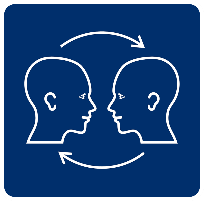Chalk Let and Are Me: Vocabulary reappropriation phenomena
Session
9.07
Practice Report
-
- Lindsey Paden Cargill (Helping Hands Center for Special Needs, USA)
Summary
Pre-literate children who are given access to speech-generating devices with robust vocabularies, immediate auditory feedback and consistent vocabulary locations overcome limitations of their device’s vocabularies by re-appropriating words and word parts to create words to satisfy their messages.
Method/Activities/Techniques
Video archives of speech/language therapy sessions were reviewed to identify and classify vocabulary re-appropriation phenomena that occur when pre-literate children use stored vocabulary for purposes outside their original intention.
Results/Findings
Four different vocabulary re-appropriation phenomena were identified: word building, acoustically similarities, partial echolalia and multiple meanings.
Conclusions
Based on the variation and frequency of noted vocabulary re-appropriations in the spontaneous aided communication of preliterate children, it is essential that speech-generating devices provided to children have a robust vocabulary, immediate auditory feedback and the ability to develop motor patterns for words. The findings also have implications for how adults interact with SGD-using children: by attending to the auditory signal rather than the text feedback.
Level of Session
General
Age Group
Child
Interest
Primary school
Special school





